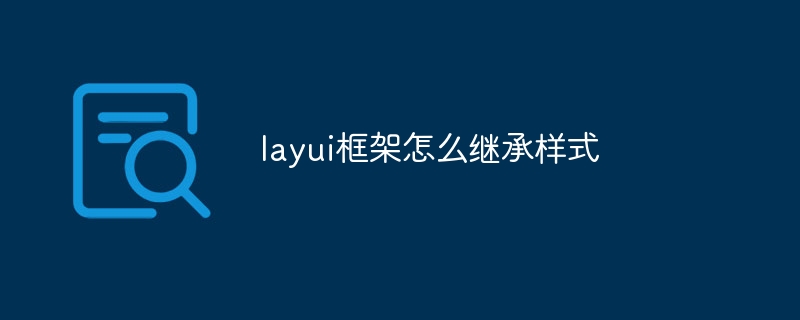
The layui framework provides two style inheritance methods: ordinary inheritance (directly using the class attribute of the parent element) and conditional inheritance (adding . before the child's class attribute). Conditional inheritance is suitable when the child needs to inherit the parent's style but needs to add or cancel specific styles. In terms of priority, conditional inheritance is higher than ordinary inheritance, and child styles will override parent conflict styles.

Style inheritance method of layui framework
The layui framework provides two style inheritance methods:
1. Ordinary inheritance
class attribute. class attribute of the parent element. <code class="html"><div class="container">
<div class="item"></div>
</div>
.container {
color: red;
}</code>2. Conditional inheritance
class attribute. . before its own class attribute to indicate that it inherits the style of the parent element. <code class="html"><div class="container">
<div class=".item"></div>
</div>
.container {
color: red;
}</code>When to use conditional inheritance?
Conditional inheritance is suitable for the following scenarios:
Note:
The above is the detailed content of How does layui framework inherit styles?. For more information, please follow other related articles on the PHP Chinese website!